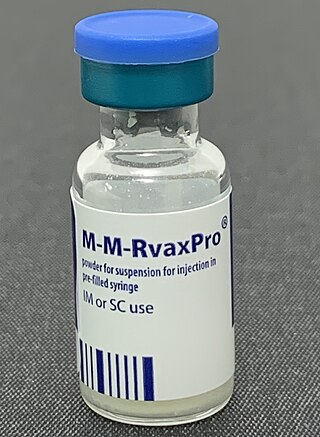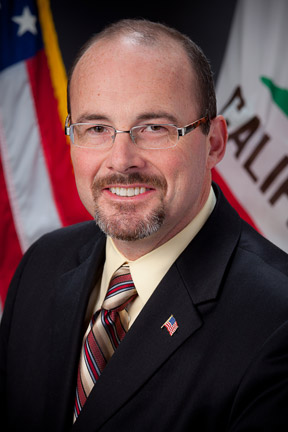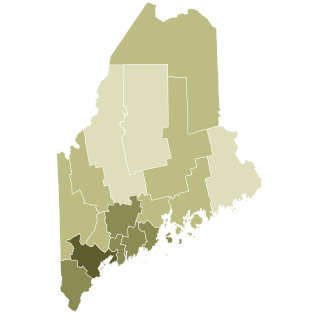
Vaccination is the administration of a vaccine to help the immune system develop immunity from a disease. Vaccines contain a microorganism or virus in a weakened,live or killed state,or proteins or toxins from the organism. In stimulating the body's adaptive immunity,they help prevent sickness from an infectious disease. When a sufficiently large percentage of a population has been vaccinated,herd immunity results. Herd immunity protects those who may be immunocompromised and cannot get a vaccine because even a weakened version would harm them. The effectiveness of vaccination has been widely studied and verified. Vaccination is the most effective method of preventing infectious diseases;widespread immunity due to vaccination is largely responsible for the worldwide eradication of smallpox and the elimination of diseases such as polio and tetanus from much of the world. However,some diseases,such as measles outbreaks in America,have seen rising cases due to relatively low vaccination rates in the 2010s –attributed,in part,to vaccine hesitancy. According to the World Health Organization,vaccination prevents 3.5–5 million deaths per year.

The MMR vaccine is a vaccine against measles,mumps,and rubella,abbreviated as MMR. The first dose is generally given to children around 9 months to 15 months of age,with a second dose at 15 months to 6 years of age,with at least four weeks between the doses. After two doses,97% of people are protected against measles,88% against mumps,and at least 97% against rubella. The vaccine is also recommended for those who do not have evidence of immunity,those with well-controlled HIV/AIDS,and within 72 hours of exposure to measles among those who are incompletely immunized. It is given by injection.

Vaccine hesitancy is a delay in acceptance,or refusal,of vaccines despite the availability of vaccine services and supporting evidence. The term covers refusals to vaccinate,delaying vaccines,accepting vaccines but remaining uncertain about their use,or using certain vaccines but not others. Although adverse effects associated with vaccines are occasionally observed,the scientific consensus that vaccines are generally safe and effective is overwhelming. Vaccine hesitancy often results in disease outbreaks and deaths from vaccine-preventable diseases. Therefore,the World Health Organization characterizes vaccine hesitancy as one of the top ten global health threats.

UC Davis Medical Center (UCDMC) is part of UC Davis Health and a major academic health center located in Sacramento,California. It is owned and operated by the University of California as part of its University of California,Davis campus. The medical center sits on a 142-acre (57 ha) campus (often referred to as the Sacramento Campus to distinguish it from the main campus in nearby Davis) located between the Elmhurst,Tahoe Park,and Oak Park residential neighborhoods. The site incorporates the land and some of the buildings of the former Sacramento Medical Center (which was acquired from the County of Sacramento in 1973) as well as much of the land (and two buildings) previously occupied by the California State Fair until its 1967 move to a new location.

A vaccination schedule is a series of vaccinations,including the timing of all doses,which may be either recommended or compulsory,depending on the country of residence. A vaccine is an antigenic preparation used to produce active immunity to a disease,in order to prevent or reduce the effects of infection by any natural or "wild" pathogen. Vaccines go through multiple phases of trials to ensure safety and effectiveness.
A vaccination policy is a health policy adopted in order to prevent the spread of infectious disease. These policies are generally put into place by state or local governments,but may also be set by private facilities,such as workplaces or schools. Many policies have been developed and implemented since vaccines were first made widely available.
Janice Bowling is an American politician in Tennessee and senator for Tennessee's 16th State Senate district. Bowling is a Republican. Bowling has been a public official and community activist in her hometown of Tullahoma,Tennessee.

Timothy Michael Donnelly is an American Republican politician who was a member of the California State Assembly,representing the 59th and 33rd districts. Before his election to the Assembly in November 2010,Donnelly was a small businessman. He resides in Twin Peaks,California. On January 22,2013,Donnelly announced his intention to seek the Republican nomination for Governor of California in the 2014 election. He placed third in the open primary,behind incumbent governor Jerry Brown and investment banker Neel Kashkari,who contested the election in November 2014.
The mature minor doctrine is a rule of law found in the United States and Canada accepting that an unemancipated minor patient may possess the maturity to choose or reject a particular health care treatment,sometimes without the knowledge or agreement of parents,and should be permitted to do so. It is now generally considered a form of patients rights;formerly,the mature minor rule was largely seen as protecting health care providers from criminal and civil claims by parents of minors at least 15.
Robert William Sears,known as Dr. Bob,is an American pediatrician from Capistrano Beach,California,noted for his unorthodox and dangerous views on childhood vaccination. While Sears acknowledges the efficacy of vaccines—for instance,he supports the claim that Chicken pox,measles,whooping cough,polio,diphtheria have all disappeared because of vaccines—he has proposed alternative vaccination schedules that depart from accepted medical recommendations. His proposals have enjoyed celebrity endorsement but are not supported by medical evidence and have contributed to dangerous under-vaccination in the national child population. While he denies being anti-vaccine,Sears has been described by many as anti-vaccine and as a vaccine delayer.
Jay N. Gordon is an American pediatrician,lecturer,and author. He is well-known within the anti-vaccine movement for his promotion of vaccine hesitancy. He does encourage vaccinating but at the discretion of the parent. He is also a long-time advocate of breastfeeding;he became a member of the International Health Advisory Council of the La Leche League in 2005.
This article summarizes healthcare in California.
In the United States,an alternative vaccination schedule is a vaccination schedule differing from the schedule endorsed by the Advisory Committee on Immunization Practices (ACIP). These schedules may be either written or ad hoc,and have not been tested for their safety or efficacy. Proponents of such schedules aim to reduce the risk of adverse effects they believe to be caused by vaccine components,such as "immune system overload" that is argued to be caused by exposure to multiple antigens. Parents who adopt these schedules tend to do so because they are concerned about the potential risks of vaccination,rather than because they are unaware of the significance of vaccination's benefits. Delayed vaccination schedules have been shown to lead to an increase in breakthrough infections without any benefit in lower side effect profiles.
California Senate Bill 277 (SB277) is a California law that removed personal belief as a reason for an exemption from the vaccination requirements for entry to private or public elementary or secondary schools in California,as well as day care centers. The final version of the bill was enacted by the California Legislature in 2015 and was signed into law by Governor Jerry Brown on June 30,2015.

Dorit Rubinstein Reiss is a Professor of Law and the James Edgar Hervey '50 Chair of Litigation at UC Hastings College of Law. She has also worked for the Hebrew University of Jerusalem and the Israeli Ministry of Justice's Department of Public Law.

Measles was declared eliminated from the United States in 2000 by the World Health Organization due to the success of vaccination efforts. However,it continues to be reintroduced by international travelers,and in recent years,anti-vaccination sentiment has allowed for the reemergence of measles outbreaks.

Vaccination policy of the United States is the subset of U.S. federal health policy that deals with immunization against infectious disease. It is decided at various levels of the government,including the individual states. This policy has been developed over the approximately two centuries since the invention of vaccination with the purpose of eradicating disease from the U.S. population,or creating a herd immunity. Policies intended to encourage vaccination impact numerous areas of law,including regulation of vaccine safety,funding of vaccination programs,vaccine mandates,adverse event reporting requirements,and compensation for injuries asserted to be associated with vaccination.

2020 Maine Question 1 was a people's veto referendum that sought to reject a new law which eliminated religious and philosophical exemptions from school vaccination requirements and for employees of nursery schools and health care facilities. The question appeared on the statewide ballot on March 3,2020,coinciding with the Democratic and Republican presidential primaries for the 2020 U.S. presidential election.

"Measles:A Dangerous Illness" is an open letter written by the children's writer Roald Dahl in 1986 in response to ongoing cases of measles in the United Kingdom at that time despite the introduction of an effective measles vaccine in 1968.

The Disneyland measles outbreak began at the Disneyland Resort,California,in December 2014,and spread to seven states in the United States,Mexico,and Canada,before it was declared over in mid-April 2015.












